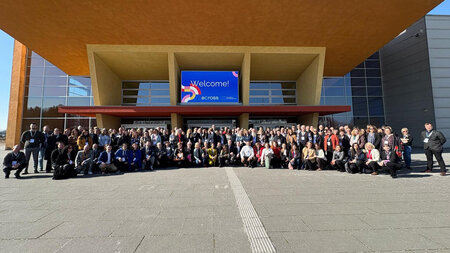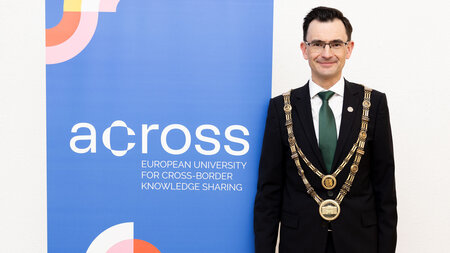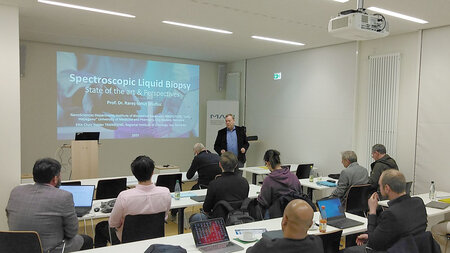From Psychological Benefits of Prostheses to Age-Appropriate User Interfaces
Mitteldeutscher Rundfunk participates in the 8th German Diversity Day on 26 May 2020 and looks at research at the interface between man and technology at Chemnitz University of Technology.
-

The word prosthesis might make you think of a hospital and a nursing home, or images of cold machine people & cyborgs a la Star Trek or Blade Runner pop into your head. In any case, one rarely associates prostheses with something pleasant. Prof. Dr. Bertolt Meyer from the Institute of Psychology at Chemnitz University of Technology is researching what stereotypes people with prostheses are faced with and how diversity can also have a positive effect on companies and society. He himself wears a hand prosthesis. Photo: Jacob Müller
Understanding diversity as enrichment, showing appreciation regardless of gender, nationality, ethnic origin, religion or ideology, disability, age, sexual orientation and identity, and actively promoting the idea of diversity - these are the goals of German Diversity Day, which was proclaimed by the association Charta der Vielfalt e.V. (Charter of Diversity) and is intended to give institutions and companies throughout the country the opportunity to present their diversity strategy to a broad public. Due to the Corona pandemic, this year's day is being held digitally. On 26 May 2020, Chemnitz University of Technology will also fly the flag for diversity - together with the broadcaster Mitteldeutscher Rundfunk (MDR).
Prostheses, more than just a replacement
In an online article (german only) by the editorial staff of MDR Wissen, Prof. Dr. Bertolt Meyer, Chair of Organizational and Economic Psychology at Chemnitz University of Technology, has his say about prostheses, which today are more than just a replacement. Meyer was born without a left forearm and wears a bionic prosthesis (i-Limb) which helps him to cope with everyday life. Thanks to his personal experience and his research in the field of "diversity," he has been one of the most sought-after experts in the classification of social development at the interface between man and machine for many years. "Our research shows that for people with disabilities a prosthesis not only offers a functional advantage because it allows them to do more things, but also a psychological one. This is because the prosthesis compensates to a certain extent for the stigma associated with disability," says Meyer.
How technology should be designed for older people
Age-related restrictions in the workplace will be a topic on the Diversity Day in the MDR magazine "Umschau" at 20:15. In a generational duel, "Umschau" wants to test how children cope with the technology of their grandparents and vice versa. Devices such as VHS players, record players, and typewriters are hardly used today. Can the children intuitively grasp how they work? In return, grandparents should try to cope with the technology of today. Scientists from Applied Geropsychology and Cognition Department at Chemnitz University of Technology (Director: Prof. Dr. Georg Jahn), together with representatives of the university's Senior Citizens' College (Scientific Director: Prof. Dr. Roland Schöne), will explain how user interfaces must look so that they do not frighten older people.
(Note: Those who missed the program or cannot watch it at this time will find it in the media library (german only) after the broadcast).
(Author: Mario Steinebach / Translation: Chelsea Burris)
Matthias Fejes
27.05.2020





